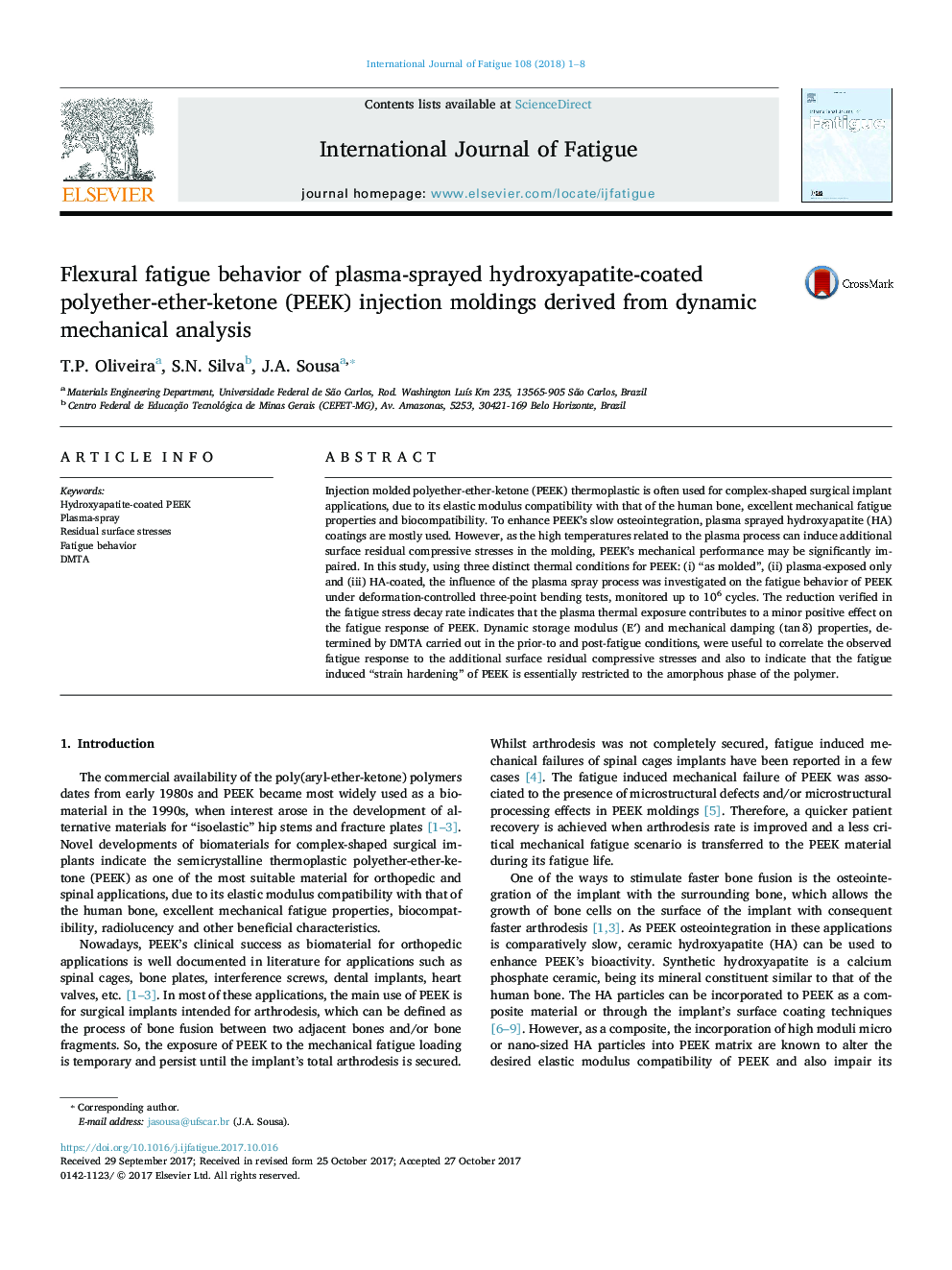| Article ID | Journal | Published Year | Pages | File Type |
|---|---|---|---|---|
| 7171578 | International Journal of Fatigue | 2018 | 8 Pages |
Abstract
Injection molded polyether-ether-ketone (PEEK) thermoplastic is often used for complex-shaped surgical implant applications, due to its elastic modulus compatibility with that of the human bone, excellent mechanical fatigue properties and biocompatibility. To enhance PEEK's slow osteointegration, plasma sprayed hydroxyapatite (HA) coatings are mostly used. However, as the high temperatures related to the plasma process can induce additional surface residual compressive stresses in the molding, PEEK's mechanical performance may be significantly impaired. In this study, using three distinct thermal conditions for PEEK: (i) “as molded”, (ii) plasma-exposed only and (iii) HA-coated, the influence of the plasma spray process was investigated on the fatigue behavior of PEEK under deformation-controlled three-point bending tests, monitored up to 106 cycles. The reduction verified in the fatigue stress decay rate indicates that the plasma thermal exposure contributes to a minor positive effect on the fatigue response of PEEK. Dynamic storage modulus (Eâ²) and mechanical damping (tanâ¯Î´) properties, determined by DMTA carried out in the prior-to and post-fatigue conditions, were useful to correlate the observed fatigue response to the additional surface residual compressive stresses and also to indicate that the fatigue induced “strain hardening” of PEEK is essentially restricted to the amorphous phase of the polymer.
Keywords
Related Topics
Physical Sciences and Engineering
Engineering
Mechanical Engineering
Authors
T.P. Oliveira, S.N. Silva, J.A. Sousa,
